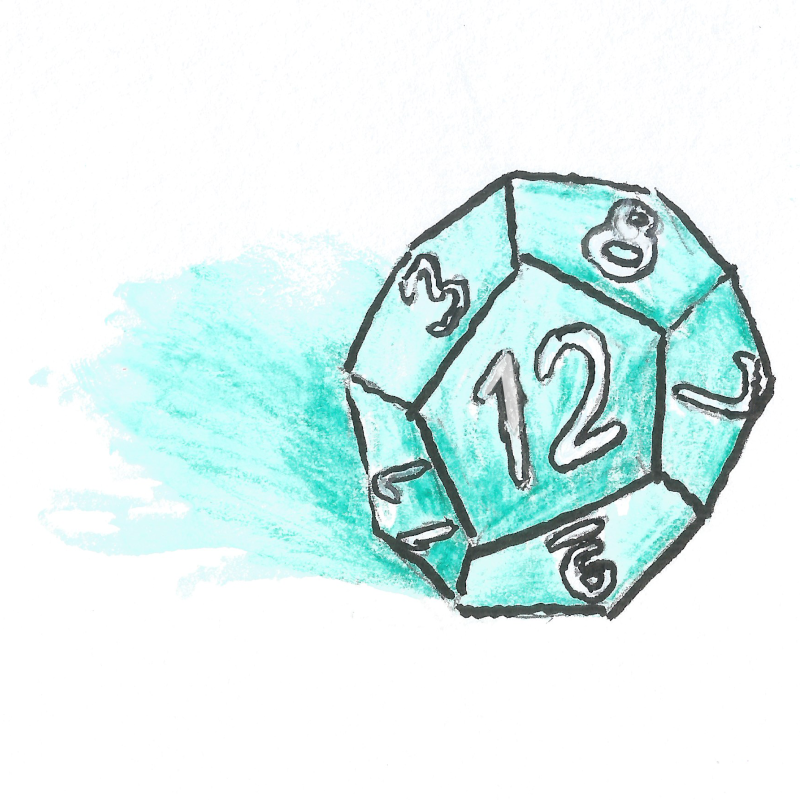As gamemaster, sometimes you need a particular series of events to happen. Plot Point A is necessary for the big reveal in Plot Point B, so you need to figure out which NPCs carry out A. Those NPCs’ purpose in the story may become delivering Plot Point A.
But NPCs and factions aren’t simply the tools by which the plot is driven; they’re elements of the world that the players can interact with. You don’t always need to know what NPCs are going to do, but you do need to know how they will respond to certain types of situations.
That is, you need to think about what motivates them. Once you understand what their needs and wants are, you use that as raw material to improv their actions at the table or in your GM prep.
Write motivations as neutral, actions as moral/ethical
When someone acts, it reveals their character. An action can be good or bad, helpful or harmful (on net, of course—it can also be some mix of the two). People and motivations don’t always have such inherent categories; rather, it’s their history or propensity towards good or bad actions that often defines them. (Of course obviously bad motivations exist, like taking over the world, but think about what your villain perceives themselves as doing in the process.)
When you define your factions’ motivations, you defer some moral and ethical categorizations until much later–maybe to future actions that haven’t even happened in your game yet.
For example, in my current D&D campaign, the players have been caught up in a planes-hopping plot involving some ancient dark fey breaking out of what has come to be known as “Forever Jail.”
In the background, there is an Empire engaged in a brutal war of expansion on the opposite side of the continent. This is the one action I planned in advance, one that’s clearly and intentionally evil, but doesn’t have much direct impact on the players’ (mostly peaceful) surroundings.
In the players’ neck of the woods, the Imperials are following orders, conscripting the forge city of Rissimo for the Empire’s war machine. They’re not the bloodthirsty folks carrying out the invasion, and they seem to want to avoid crushing the region under their thumb. (Again, factions can contain multitudes.) Adjacent to evil, but more amoral than pure evil.
When the local Imperials came into focus, I started by thinking about motivations. The local Imperial army, for example, is concerned about a rediscovered fey portal nearby, fearing an extradimensional incursion into the relatively-peaceful frontier region where they’re stationed. They don’t want a massacre of the Empire’s citizens on their watch for a multitude of reasons—their own careers, the task they’re undertaking, and because they see it as their duty. By itself, this isn’t particularly good or evil.
However, the actions they’ve taken towards this goal are a mixed bag. The Imperial army would like to blow up the fey portal, which isn’t fundamentally good or bad–it’s dependent on what you think about a host of other little issues, and whose opinions you trust. In the Imperials’ zeal to stop this perceived threat, they’re willing to do horrifying things like torture one of the party’s contacts for information. They’re also facing down a political struggle with the local Imperial mages who want to preserve the portal (because traveling through other planes might improve the Empire’s mobility in the material plane).
Starting from motivations raises a host of other questions. Is the army is right about the extraplanar threat, or is it overblown? (I’ll talk about whether or not they might actually be correct in the next post.) What actions are acceptable in pursuit of ending that threat? Would something of value would be lost if the fey portal was destroyed?
Again, not every faction or NPC needs to exist as a values-clarification exercise. Sometimes it’s fun to have mustache-twirling villains and incorruptible heroes. But you can add depth to your game by putting off “good or bad?” questions in your planning until the answer is actually pertinent.
When you do, you’re free to ask more complicated questions about the precise nature of that good or evil in your world. Is the faction actually benevolent, or does it only have a motivation that coincidentally protects others? Just how bad can the faction get when it starts rationalizing evil actions for good intentions? Can the faction tell when they have crossed that line? It’s an opportunity to give more texture to your heroes and villains, and perhaps surprise players as they learn more.
